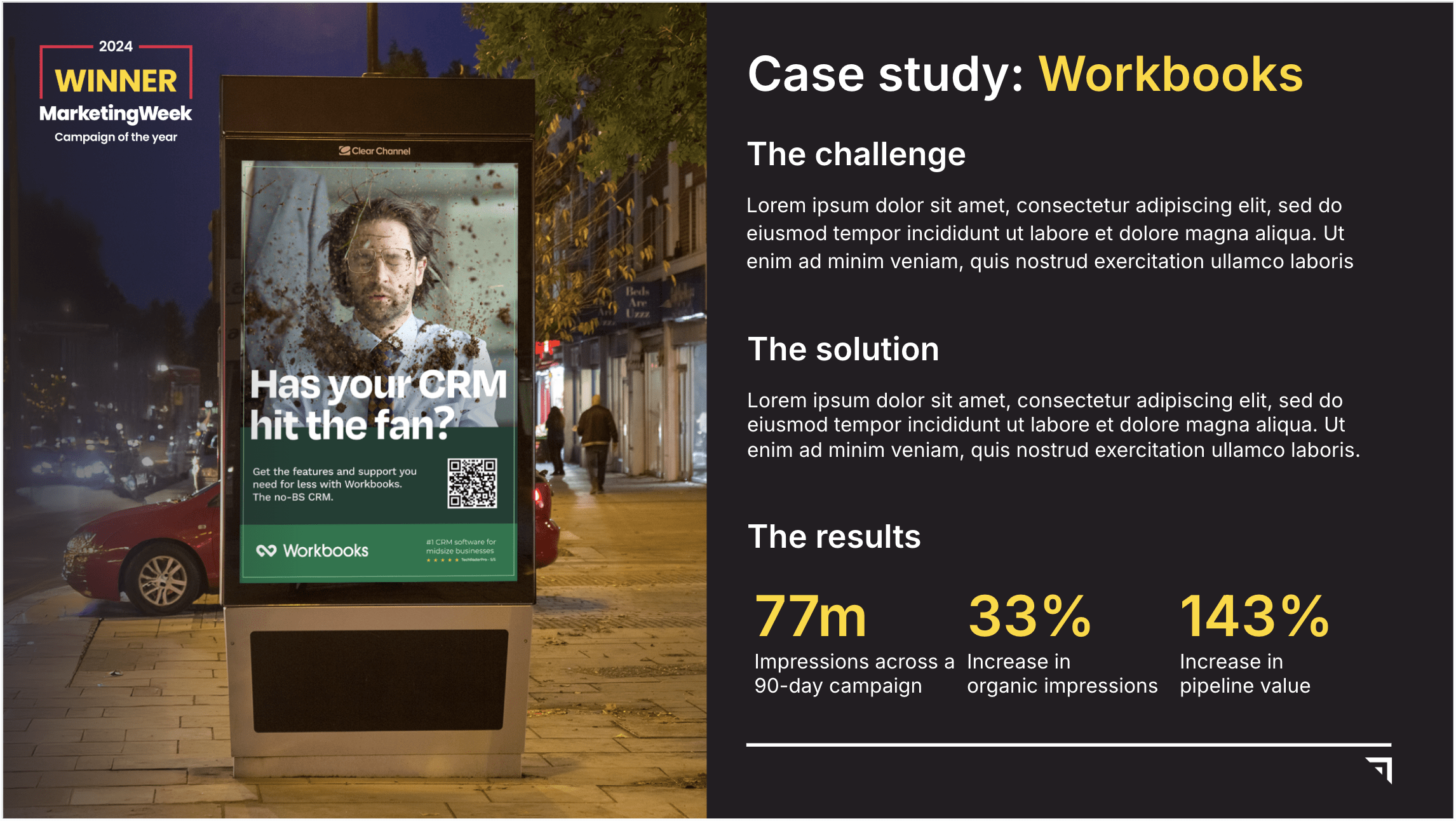
Finding a digital marketing agency to partner with is one of the most significant strategic decisions a business leader or marketing director will make. It’s not just about procuring the right services; it’s about investing in a true partnership that will drive your company’s next phase of growth.
The digital landscape is crowded with agencies, each promising results. But how do you cut through the noise to find the right cultural fit and, critically, the right expertise to move your business forward? The answer lies in shifting your focus from what they do to how they will help you solve your most pressing business challenges.
Here are our tips when navigating the selection process and ensuring you choose a partner, not just a provider.
Defining the destination: What problems are you looking to solve?
Before you even start reviewing agency websites, you must define the precise challenge you need to overcome. Vague goals like “we need better SEO” are insufficient. Your agency search should be anchored in tangible business outcomes.
Ask yourself and your internal stakeholders:
- Are we looking to increase market share in a specific, high-value vertical?
- Is our primary issue a lack of qualified leads, causing pipeline stagnation?
- Do we have a strong product but poor brand recognition within the buying committee?
- Are we struggling with high customer churn post-acquisition, suggesting a problem with customer experience (CX) or retention strategy?
Answering these questions allows you to evaluate an agency based on its ability to deliver solutions to your unique problem set, not just its list of services. For example, if your problem is complex pipeline stagnation in B2B, you need an agency that understands Account-Based Marketing (ABM) and the dynamics of a multi-threaded decision-making unit (DMU). If the problem is lead volume for a high-volume B2C service, the focus might shift to efficiency in paid media and Conversion Rate Optimisation (CRO). Define the destination, and the right agency will be the one with the best map and vehicle to get you there.

B2B vs. B2C: Why specialism matters more than you think
A common mistake is assuming that marketing principles are universally transferable. While core concepts hold true, the execution, strategy and expertise required for Business-to-Business (B2B) marketing can be fundamentally different from Business-to-Consumer (B2C).
The B2B difference
B2B digital marketing deals with longer sales cycles, higher average contract values (ACV), and often, a DMU involving multiple stakeholders. The emphasis is on trust, authority and providing deep, educational content throughout the buying journey. The required expertise includes:
- Understanding industry verticals: an agency needs to speak the language of your industry, understanding specific regulations and buyer motivations (e.g., procurement, engineering, finance).
- Content strategy for authority: creating content that establishes thought leadership and addresses complex pain points, rather than focusing on impulse buys.
- Channel sophistication: Utilising platforms like LinkedIn and targeted programmatic advertising, often alongside sophisticated ABM campaigns, as opposed to broad social media or mass-market channels.
If you are a B2B organisation, you must prioritise agencies that can demonstrate proven, measurable success in B2B environments. A B2C focus on rapid conversion and emotional appeal will simply not translate to the complex, considered purchases inherent in the B2B world. The strategic rigour and data-driven approach needed to influence a buying committee demand a specialist mindset.

Mapping your needs to agency expertise
Once your strategic goals are clear, you can evaluate the tactical expertise an agency brings to the table. Most agencies list services, but you need to assess the depth and integration of those services.
Are you primarily looking for traffic growth, revenue conversion or brand lift? The answer dictates the essential specialisms:
- Organic search (SEO) and content: Required for long-term, sustainable traffic growth and establishing authority. Look for agencies that understand technical SEO alongside strategic content mapping to the buyer journey.
- Paid media (PPC/programmatic): Necessary for rapid market entry, scaling demand generation and precise targeting. Evaluate their experience across high-intent channels like Google Ads and strategic B2B channels like LinkedIn.
- Web development & user experience (UX/CRO): If your website is the bottleneck, you need an agency that can bridge the gap between creative design and data-backed conversion optimisation. A brilliant campaign fails if the landing experience is poor.
- Digital PR and link building: Essential for increasing domain authority and building credibility, which are critical components of a successful B2B authority strategy.
The strongest agencies will show you how these disciplines work together. For instance, how their SEO research informs the content team, and how the CRO team optimises the landing pages that their PPC specialists drive traffic to. Look for a cohesive strategy, not just a menu of siloed services.
The full-service debate: Integrated strategy or deep focus?
The choice between a full-service agency and a collection of specialist partners is a classic conundrum. There are merits to both, but the right choice hinges on your internal capabilities and the complexity of your marketing strategy.
Specialist agency:
- Pros: Offers unparalleled depth of expertise in one area (e.g., pure SEO or highly technical PPC). Ideal if your internal team is strong in all other areas but has one critical gap.
- Cons: Requires you to manage multiple vendor relationships and ensure seamless coordination between them – a significant burden on the internal marketing team.
Full-service agency:
- Pros: Provides a single, unified strategy across all digital channels. This integration ensures consistency in messaging, data sharing, and strategic alignment, which is vital for complex B2B buyer journeys. The agency is responsible for the overall outcome.
- Cons: You must ensure that “full-service” doesn’t mean “jack-of-all-trades, master of none.” The agency must demonstrate high competence across the suite of services they offer.
For most businesses looking for strategic leadership and integrated growth, especially those in the B2B space where the strategy is inherently complex, a full-service agency that can connect the dots between brand, content, search and development often provides the greatest advantage. It centralises accountability and ensures that all tactical efforts are pulling in the same strategic direction.
Conclusion: Partnering for strategic growth
Choosing an agency is a partnership decision, not a purchasing one. The right fit is an agency that understands your commercial objectives, speaks the language of your industry and can demonstrate a track record of solving problems similar to yours.
Do your due diligence: investigate their case studies, scrutinise their processes and, most importantly, confirm their strategic approach aligns with your business’s goals. By focusing on your core problems and demanding strategic expertise, you can ensure your agency partnership is an investment that yields true, sustainable growth.
Looking for a B2B agency? Let’s talk.
The post How to choose the right digital marketing agency for your business appeared first on Hallam.
hallam.agency (Article Sourced Website)
#choose #digital #marketing #agency #business
